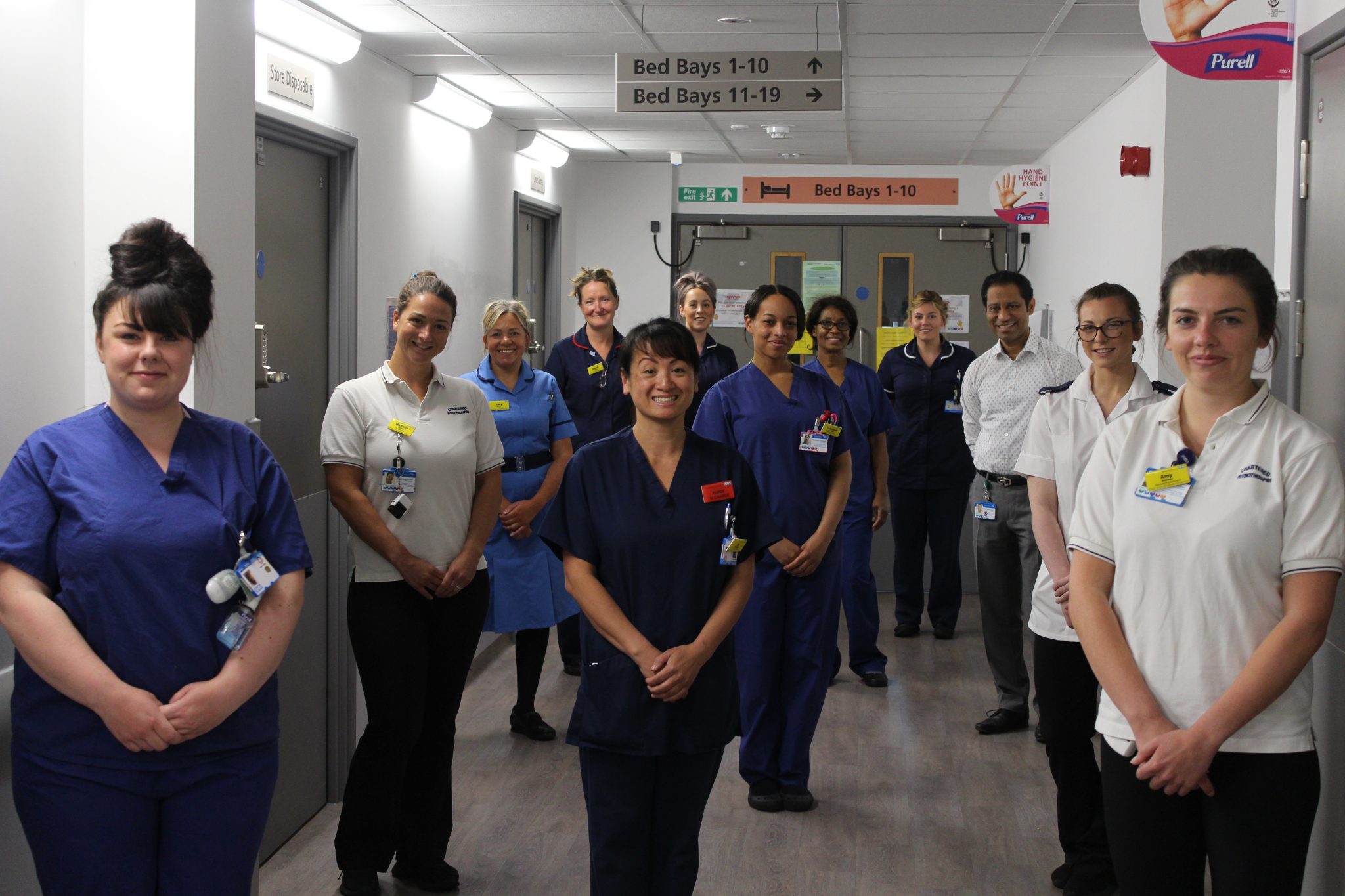Just a couple of months ago most of us wouldn’t even have seen an Intensive Care Unit– now we see images of critically ill patients on ventilators or connected to other equipment almost daily in the media as part of its coverage of the COVID-19 pandemic.
Walsall Manor Hospital’s ICU had 36 ventilated patients at the virus’s peak and those who have been working on the unit throughout this time all have one thing in common – they have never experienced anything as challenging and frightening as Coronavirus.
“People use the word “unprecedented” a lot but this really has been unknown territory for us all, no matter how many years we’ve spent in critical care,” said Consultant Anaesthetist Derrick Clarence.
“There are so many things we have witnessed and experienced. Prior to the pandemic it would have been unusual to have ventilated a patient for longer than two weeks; some of our COVID-19 patients have been on a ventilator for over 40 days. Patients whose condition has been at a plateau have suddenly and swiftly deteriorated and the speed with which this has happened has been alarming.
“We’ve cared for patients who we didn’t think would survive who have proved us wrong and gone on to improve slowly and steadily. We’ve seen younger patients with no previous health conditions who have not survived. The only certainty we have taken so far is that this virus can affect anyone and that full recovery, if it can be achieved, may take up to two years.”
Xana Marriott is Senior Sister for Critical Care Rehabilitation who has been working with patients and their families and is now starting to see long term patients who were COVID-19 being able to go home.
“There have been times in the last few weeks that the pace has been relentless and there has been no time to focus on anything other than the crisis as it’s happening,” she explained.
“Now we can see some of our long term patients making real progress on their recovery journey. Rehabilitation following a period in ICU covers a whole host of areas and includes physical as well as psychological support. It is a real team effort that not only involves healthcare professionals such as myself, physiotherapists and dietitians, it also includes the patient’s family and friends.
“Post ICU patients can experience extreme tiredness, weakness, depression, hallucinations, insomnia, nightmares and guilt. They may have been in the unit at the time that others have died, they have been on medication that makes them drowsy or confused, they may not remember a single thing about being there. And as well as these issues, there are a number of patients who might be their family’s main wage earner, or a carer for another relative or friend. Their illness may have massive repercussions for others. All of these factors need to be taken into account when we look at their rehabilitation.”
Xana said that patients’ goals and ambitions were another important part of their rehabilitation; although managing expectations and encouraging them to celebrate what may seem like small milestones was equally as important.
They also have a chance to talk daily to a patient liaison member of staff who is also an intensive care sister.
“For patients who were independent before COVID-19 they will have to come to terms with the fact that recovery will take a while. To be able to get dressed, walk and feed themselves can take time and can be frustrating when someone’s goal is to perhaps go back to work full time or take the family on a trip once lockdown rules are relaxed. But smaller achievements are just as important and can’t be underestimated. This can be where the support and encouragement of family and friends can be so vital.”
Window rehabilitation has proved a real turning point for those patients who have been able to be weaned off a ventilator and move into a room with a window to see their loved ones who remain outside the unit.
“One of our patients saw his first grandchild for the first time as she was born while he was on a ventilator,” said Xana. “Another patient was able to see his wife. This is so powerful during a patient’s recovery and definitely lifts their spirits, making them more determined. It helps them psychologically, particularly at a time when visitors are not allowed into the hospital due to the restrictions.
“To be able to see our patients on a ward, continuing their recovery and preparing to go home is also a boost for staff. We have been with that patient for a long time, talking to them although they may be unresponsive and treating them like we would treat a member of our own family. When we can have a proper chat and make plans to see them in our follow-up clinics it’s fantastic and you do feel as proud as if it were a member of your own family.
“We are not through the pandemic yet and we want people to realise just how long and difficult recovery from this virus can as well as appreciate that it affects all sorts of people, of all ages, from all backgrounds. They need to do everything they can to stay safe and protect each other.”

